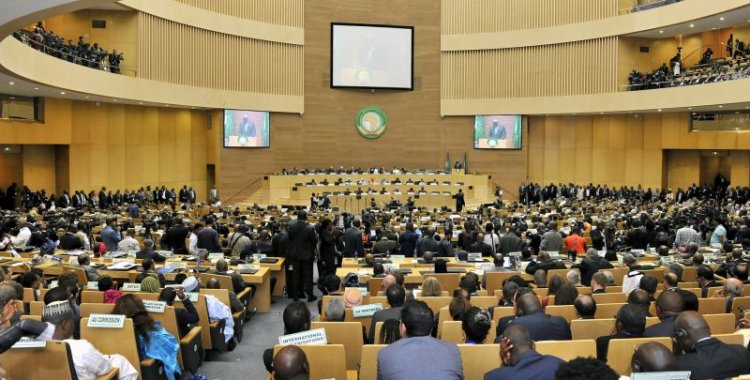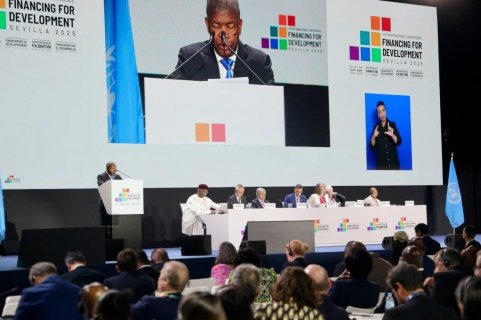The organization, whose heads of state and government meet between 5 and 6 February in Addis Ababa, was proclaimed at the summit in Durban, South Africa in July 2002, to replace the Organization of African Unity (OAU), founded on the 25th of May 1963.
According to the AU website, the decision to re-found the pan-African organization resulted from a consensus among African leaders that, in order to realize Africa's potential, it was necessary to reorient attention, which until then had been on the struggle for decolonization and against apartheid, for the cooperation and integration of States.
As the diplomat and former Minister of Foreign Affairs António Monteiro, "ideologist" of the summits between Europe and Africa, recalls, the creation of the AU results from "a certain frustration" with the OAU, which had failed to contribute to peace and internal stability in the continent.
And the AU's vision, at the beginning of the millennium, follows "a little bit the path of what was the European Union", creating an organization "leader of the pan-African ideal" that promotes political stability and economic development, he recalls.
Two decades later, António Monteiro admits that there is "an inability of the African Union itself to achieve all the objectives", but stresses that the glass can be seen as being "half full or half empty".
In an interview with Lusa from Addis Ababa, Steven Gruzd, director of the program on African Governance and Diplomacy at the South African Institute of International Affairs (SAIIA), recalls that there were "great expectations" at the AU, and admits that today there is "a little bit of disappointment" with what has been achieved.
"It remains a big bureaucratic beast, many of the practices have not changed since the days of the OAU, (...) and the AU has not been successful in preventing conflicts. There have been many conflicts in the last 20 years, some of them very serious", lamented the analyst.
According to Gruzd, this is partly due to the principle of subsidiarity, which prioritizes the role of regional organizations such as the Economic Community of West African States (ECOWAS) or the Southern African Development Community (SADC) to intervene in conflicts in their regions.
In the conflict in northern Mozambique, he exemplified, the AU preferred not to get involved, but supported the involvement of SADC.
The researcher at the Institute for Security Studies (ISS) Liesl Louw-Vaudran, speaking to Lusa from Johannesburg, agreed that the AU failed to fulfill its main mandate, which was to establish peace in Africa, attributing responsibility to the question of sovereignty.
Unlike the EU, she recalled, the AU is not a supranational organization, so "it cannot impose anything on member states".
"The AU is, in the final analysis, its member states and many of them are not democratic states", so they do not accept interventions that could set precedents, she recalled.
The expert admitted that the AU failed to ensure peace and good governance, namely in the four recent coups d'état – Burkina Faso, Sudan, Mali and Guinea-Conakry, or the case of Chad, where the death of the President in 2021 led to a transition of anti-democratic power.
"The AU is almost powerless. It can only try to mediate", said Louw-Vaudran, stressing, however, that, "under the circumstances", the organization "has been doing quite well".
In the expert's opinion, the AU is a "much stronger organization than the OAU was 20 years ago" and "has done a lot when it comes to development issues."
António Monteiro, although admitting that "democracy continues to be very incipient in most of the continent", underlines that the AU "has made a remarkable path, not only in the attempt to create more factors of stability, but above all with regard to the the defense of human rights".
Gruzd particularly underlines the development in terms of women's empowerment, recalling that, particularly during the tenure of Nkosazana Dlamini Zuma as Chairperson of the AU Commission, great advances were made in this area.
The African Union was created in 2022 and currently comprises 55 member states, including Portuguese-speaking Angola, Cape Verde, Guinea-Bissau, Equatorial Guinea, Mozambique and São Tomé and Príncipe.
The organization's presidency rotates between countries for a period of one year and the executive management is ensured by a commission made up of a president, a vice-president and six commissioners, elected for four-year terms.
The heads of state and government of the 55 member states meet annually in assembly at the organization's headquarters in Addis Ababa, Ethiopia.







